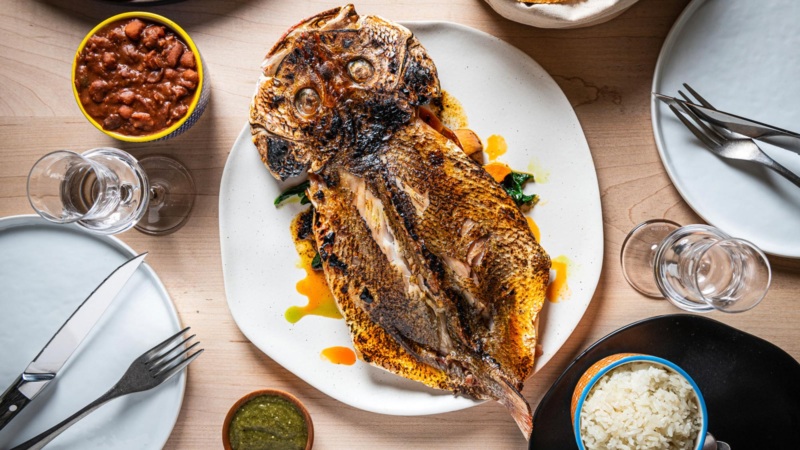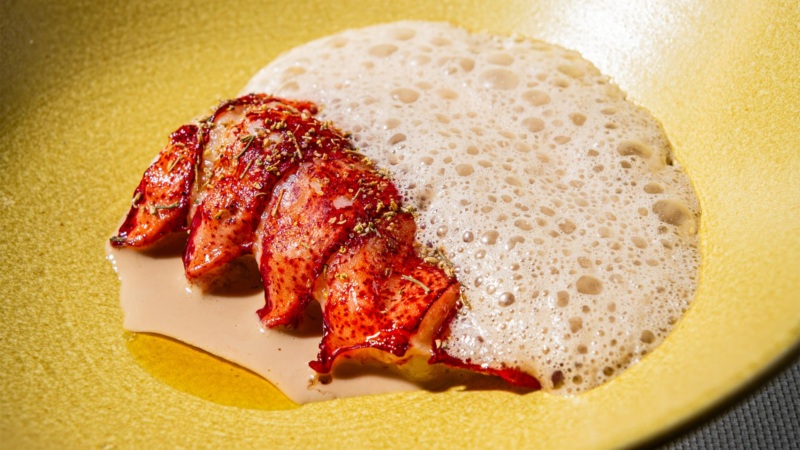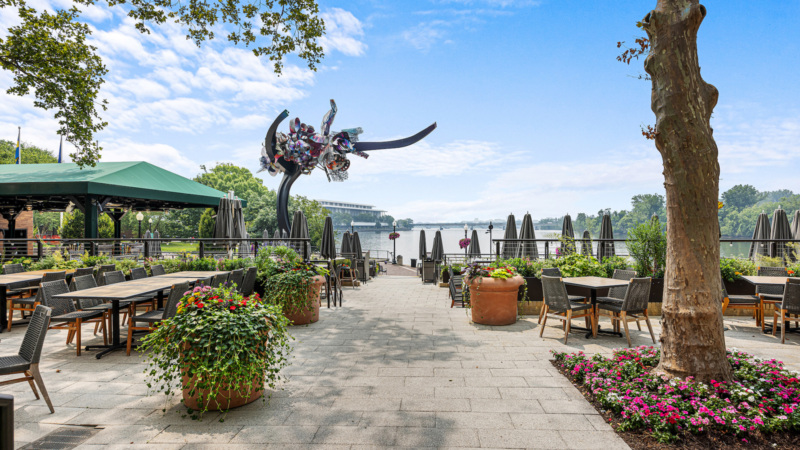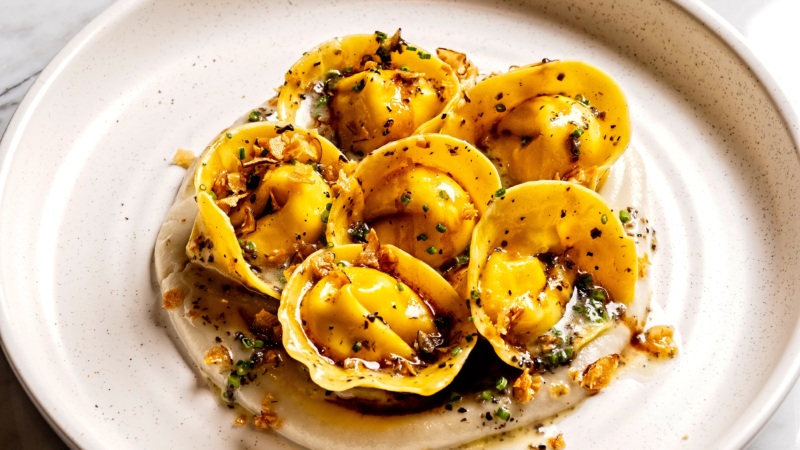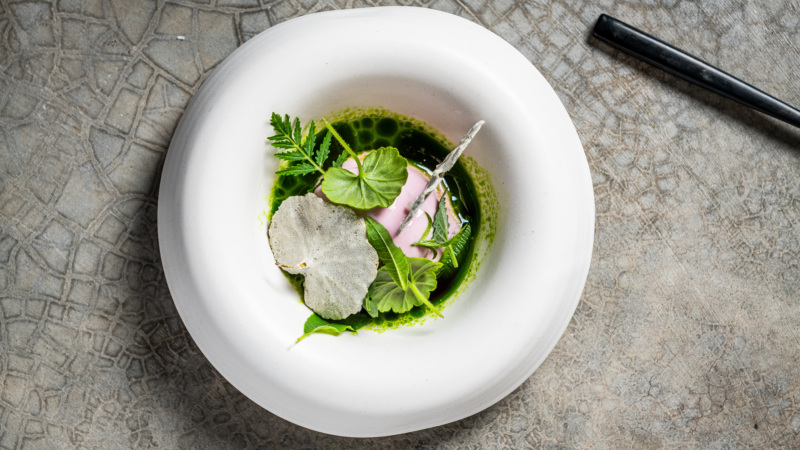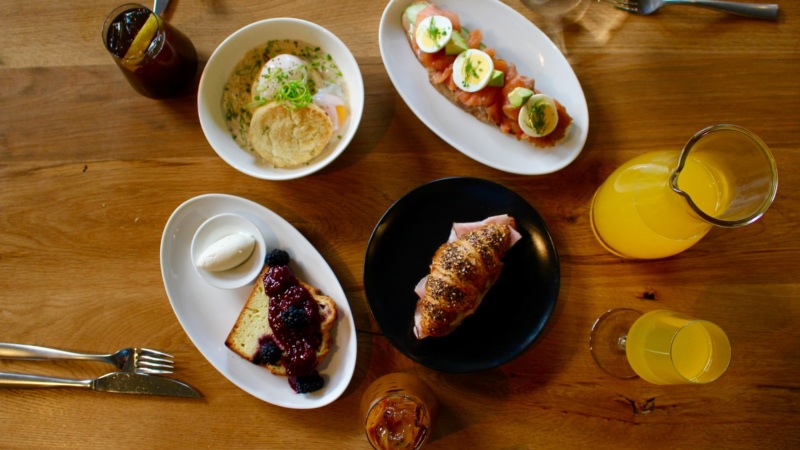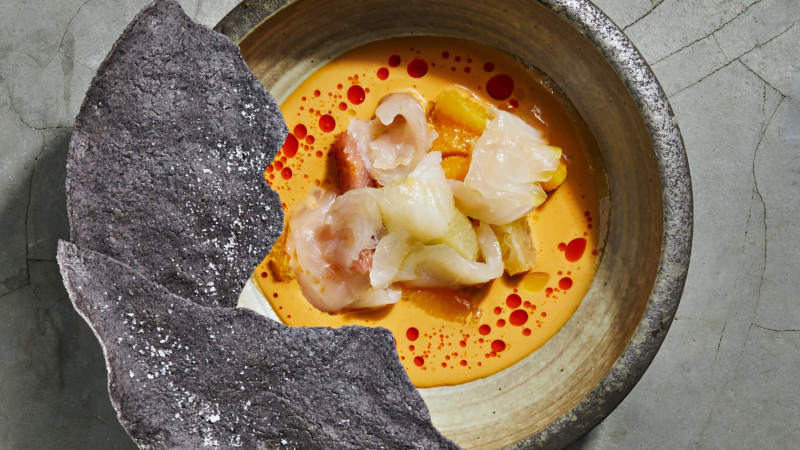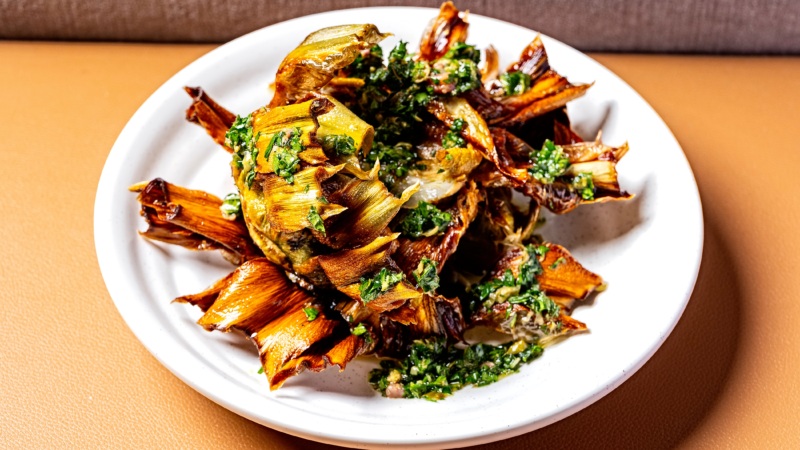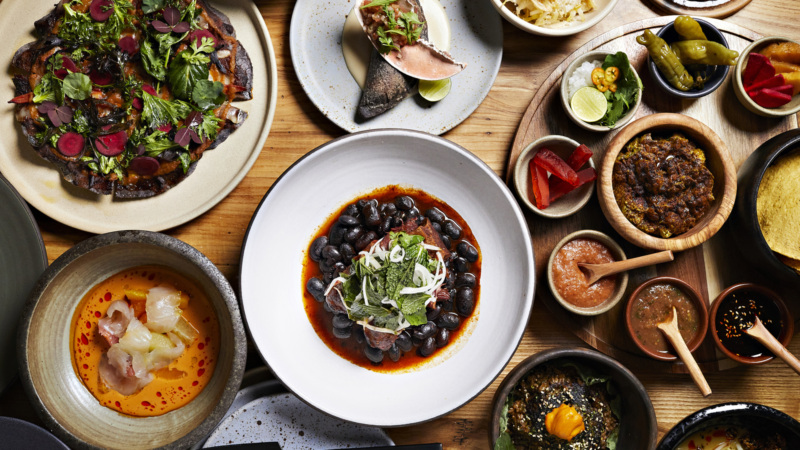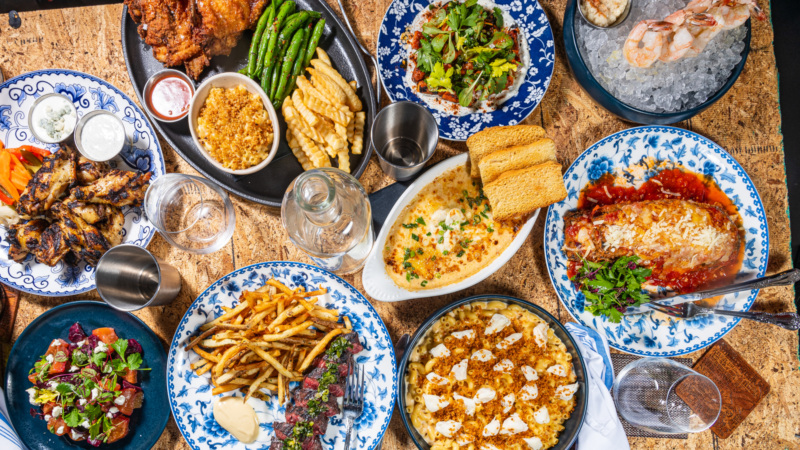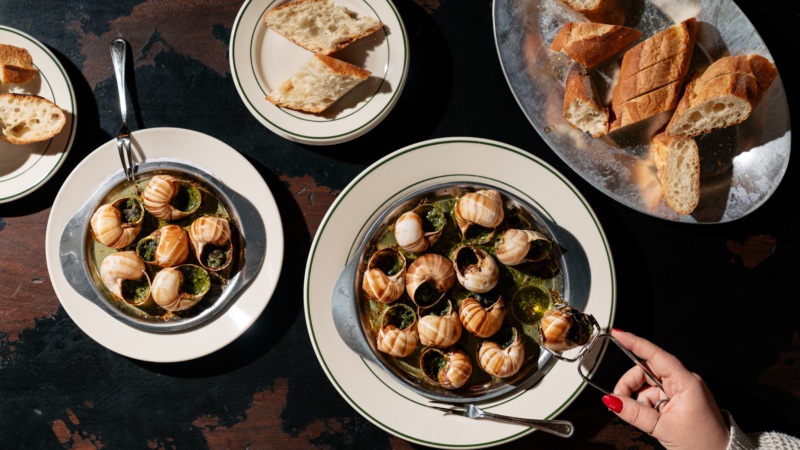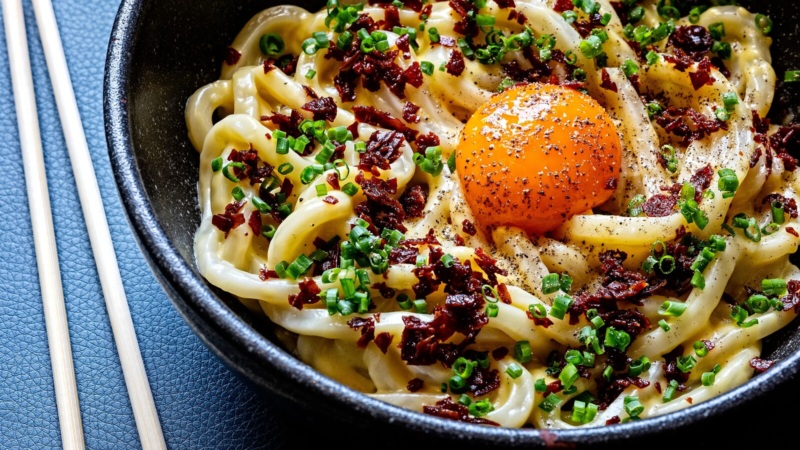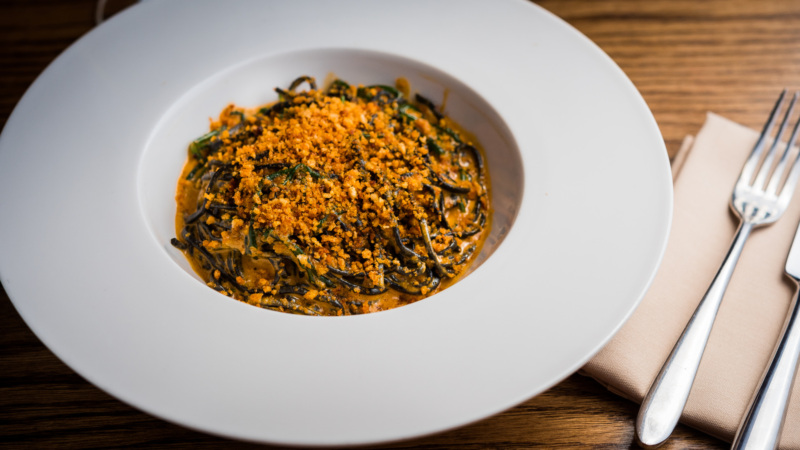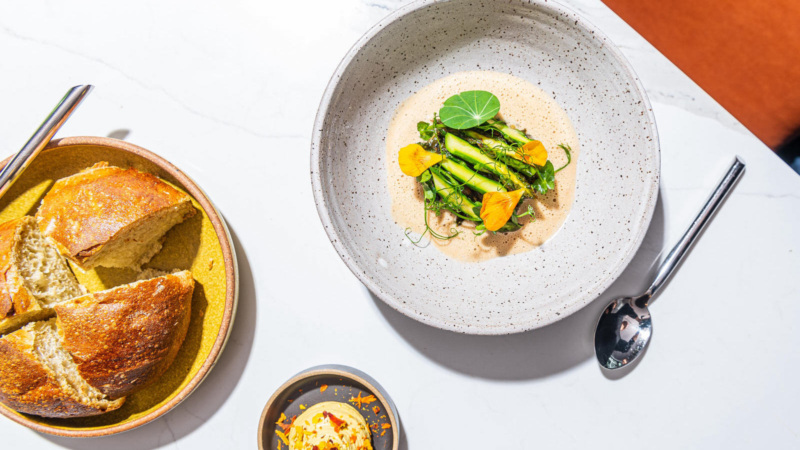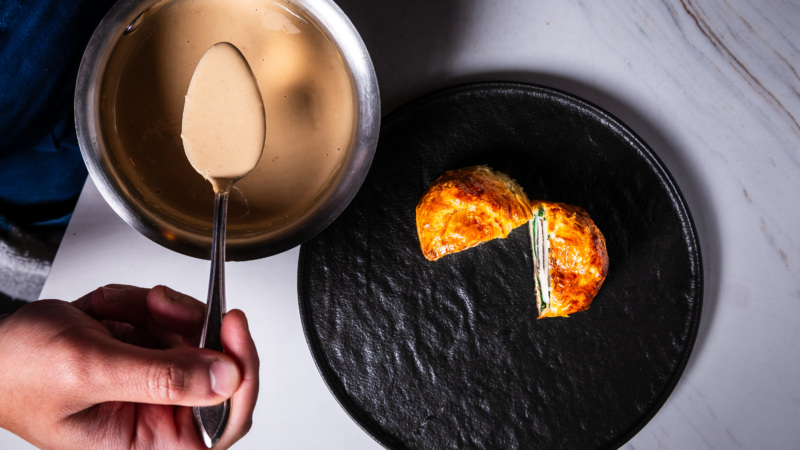
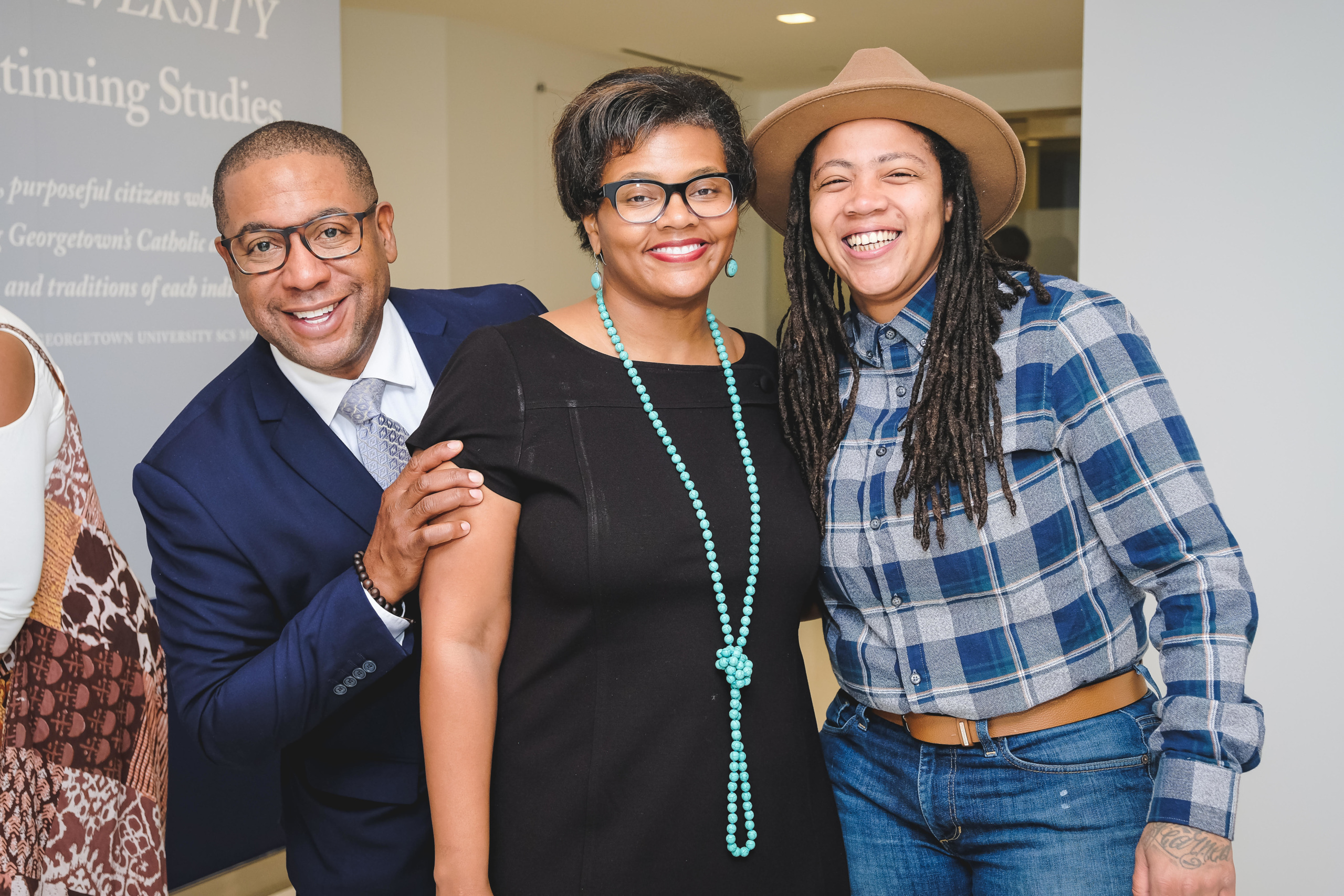
Behind the Line Washington D.C.
A Celebration of DC’s Black Restaurants Is Ready to Roll, In a Year Like No Other
It was at the historic Metropolitan African Methodist Episcopal Church in Washington where Erinn Tucker met, and later joined forces with fellow member Furard Tate, who was part of the church’s food service program. Tucker is a faculty director and associate professor of global leadership at Georgetown University, while Tate owns Inspire Hospitality Group, which does workforce development for the hospitality industry — and had owned Inspire BBQ on H Street.
The two discussed using their talents to organize an event that would not only prepare Blacks for the food and hospitality industry, but also would provide the tools needed to become managers or entrepreneurs. Later, Tucker read an article in the Washington City Paper about Andra “A.J.” Johnson, managing partner and beverage director of the bar Serenata, and author of an upcoming book, White Plates, Black Faces, on D.C.’s restaurant industry from the perspective of Black employees. Tucker decided to bring her into the fold.
Together, the trio created the blueprint for what would become DMV Black Restaurant Week, a popular, weeklong celebration of Black culinary and bar talent in D.C., Maryland and Virginia, that also runs continuous programming all year long.
They were brought together by a common belief in a need for more education in food and hospitality, and a passion for supporting Blacks in those local industries. But those elements, coupled with disturbing videos of white people racially profiling Black people in food spaces, pushed them to launch the event in 2018. That was the year when a white Starbucks manager in Philadelphia called police on two Black men as they waited for a business meeting, and of course the infamous “BBQ Becky” video in Oakland.
“These stories started to come out about well, you know, where are the Black chefs and where are the Black owners? And it was kind of like well, what do you mean where are they?” Tucker says. “They are here, but there wasn’t really a platform for them to really showcase their talent.”
In fact, the trio’s effort was the first of two Black restaurant weeks to come to the D.C. area recently. A second event debuted in September, part of a nationally organized campaign started in 2016 in cities like Atlanta and Los Angeles, with more focus on promoting African, African-American and Caribbean cuisine. Johnson, Tate, and Tucker’s event, meantime, has retained its focus on education and training throughout the community.
Of course, COVID made the prospects of any restaurant week this year more daunting, so the cofounders switched up their programming to help the Black food and beverage industries survive. They and other volunteers assisted restaurant owners with forms for city or federal grants and loans, arranged for several restaurants to donate meals they couldn’t sell after the shutdown to students at a Title 1 school, and connected four caterers who could not afford commercial kitchen space to the kitchen at Metropolitan church.
“It’s our community-engagement strategy, and every business should have a really active community engagement strategy,” Tate says. “You don’t just move into a community without understanding your impact on that community.”
This year, around 70 restaurants and food businesses are taking part in the week-long event, which runs November 8 through 15. They include including HalfSmoke, Cottage Hill Jamaican Grill, DC Puddin’ and Pinke’s Eats. Here’s more about what to expect from the third annual DMV Black Restaurant Week.
Answers have been edited for clarity.
Can you please explain what DMV Black Restaurant Week is, and what it’s trying to do?
Tucker: The mission of DMV Black Restaurant Week is to support and sustain Black-owned businesses in the food service and hospitality sector by providing education and professional development, as well as providing an authentic experience for customers.
Tate: We do this by first understanding that our food has always told our history, it’s told our culture. When you sit down with a plate of food with somebody, it connects to cultures and experiences. We also understand that we as a community have to sustain those businesses that do that. We support our community through our businesses supporting each other, so we’re showing them how to collaborate together. These businesses have always been critical to our community, to our culture. Especially our food businesses. Just like our barbershops, you know?
Johnson: A lot of times, the information wheel seems to stop, so to speak, when it comes to businesses owners that are people of color. And so being able to provide resources and access to people year-round, I think, is an important part of what we do.
Last year you held seminars and public events for DMV Black Restaurant Week. How has the pandemic changed that aspect?
Tucker: One of the events that we did have, and we’ll continue to have, is the food and beverage education conference. COVID has given us the ability to be both a little bit hybrid, as well as virtual. Instead of doing a one-day conference, we’re actually going to do a five-day conference. We’re going to have two streams of conversation: one called a lunch-and-learn, where attendees will get strong takeaways of how to sustain their businesses. And then our second stream is conversations and collaboration; now that you have an understanding of strategy, how does it then appeal to a much larger purpose?
Johnson: I was trying to put together a cocktail competition, which was one of our most well-attended events, but it was a little bit difficult to navigate this year, obviously. So it was like, what else can we do that’ll still get the cocktail part of what we do in, and also hit with our brand of “The Power of Collaboration?” What I came up with was something that was encompassing businesses from all over the city, by reaching out to a Black-owned spirits brand called Ten To One Rum, that’s new to the market. I asked them if they wanted to be part of DMV Black Restaurant Week, but in a way that was introducing them to the market and getting them at least 10 accounts for DMV Black Restaurant Week.
The cocktail that we’re doing is called The Power of Collaboration. I’m partnering with Rohit Malhotra from Capo Italian Deli on the cocktail and on the project itself. He does the Fauci Pouchy, so he’s the king of the cocktail pouch. So it makes sense, if we’re going to do a cocktail and we’re going to do it in a pouch, it’s got to be with Rohit, right? The cocktail itself is like just a really amped up daiquiri, and we’re packaging that.
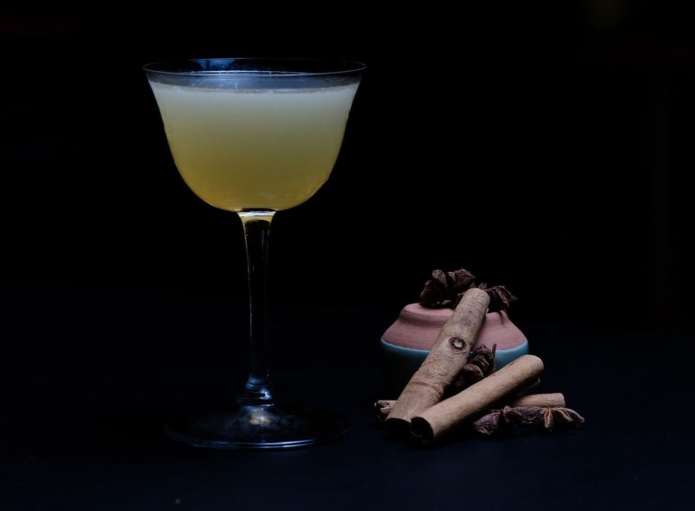
The package will be 16 ounces and it’ll be $20 and we’ll have pouches sold at Service Bar, Taqueria Del Barrio, Colada Shop, Roy Boy’s-Shaw, Serenata, Capo, Culture Coffee and more. The cocktails themselves are free to the restaurant. The only thing we ask is that they donate 30 percent of their sales from the cocktail. Fifteen percent is going to the Anand P. Batra Memorial Scholarship at Howard University, and 15 percent goes to DMV Black Restaurant Week. It’ll be available the entire week — it’s the official cocktail of DMV Black Restaurant Week.
Do you think the events online will be as well-attended as they were when they were live?
Tucker: I think that it’s going to have a larger reach, and people are more engaged in wanting to get knowledge and information. So through the online platform, interestingly enough, we have that ability to be national. So anyone who has an interest in this can now register, and they don’t have to necessarily be right there in person.
Finally, who is DMV Black Restaurant Week for?
Tucker: It’s for anyone who is interested in wanting a local, authentic experience that is both DMV-focused, as well as food that is authentic and rich. We call it #tastetheculture because you are tasting both our D.C. flavors, but you’re also tasing global favors and that is what’s encompassing of these restaurants and these caterers.
Lenore T. Adkins is a freelance food writer based in Washington, D.C., who has been eating her way through the District for six years. Her work has appeared in the Washington Post, the James Beard Foundation website, Eater DC and elsewhere. Follow her on Instagram and Twitter. Follow Resy, too.
Discover More


